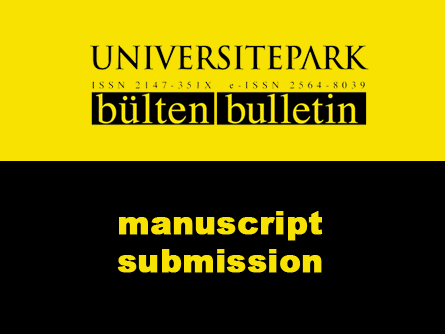Deconstructing What Teachers Can Learn From Studying Psychology
pp. 24-34 | Published Online: October 2022 | DOI: 10.22521/unibulletin.2022.111.2
Toolika Wadhwa
![]() Full text PDF |
363 |
270
Full text PDF |
363 |
270
Abstract
|
Background/purpose – Courses on psychology form a constituent part of teacher education programs, both at the preservice and inservice levels. With certain variations, these courses tend to focus on the theories of learning, development, and diversity. As teacher education programs in India prepare to undergo changes in accordance with the 2020 National Education Policy, this paper explores the rationale of including the subject of psychology in the education of teachers. Materials/methods – This study is a review article; presenting a literature review on the rationale of including the topic of psychology in the education of teachers. Results – The paper is presented in four sections. The first section discusses the recommendation of the curriculum framework on teacher education in order to establish an outline for psychological studies in teacher education. The second section explores the insights that can be drawn from an understanding of psychology. Today’s multicultural student body brings diverse needs, thoughts, and ideas to the classroom, which makes it imperative for teachers to understand learning spaces and processes from a sociocultural perspective. The third section expands the focus of studying psychology from understanding learners to understanding teachers. This shift in focus is required as teachers work under immense stress and existing preservice teacher education programs are inadequate in building the requisite capacities to deal with personal and professional stress. The fourth section explores the role of teachers in today’s fast-changing world. It is through an understanding of their self that teachers develop better awareness of their role in relation to their students. Conclusion – The need to reinvent pedagogical strategies to suit the needs of learners and to explore new ways of conceptualizing content in the classroom will be highlighted. The paper concludes with a brief discussion on the need to reconceptualize courses in psychology by understanding theories in psychology in their sociohistorical embeddedness. |
Keywords: Psychology, learning, teacher preparation, psychology in education
ReferencesErtmer, P. A., & Newby, T. J. (2008). Behaviorism, Cognitivism, Constructivism: Comparing Critical Features from an Instructional Design Perspective. Performance Improvement Quarterly, 6(4), 50-72. https://doi.org/10.1111/j.1937-8327.1993.tb00605.x
Glazzard, J., & Rose, A. (2020). The impact of teacher well-being and mental health on pupil progress in primary schools. Journal of Public Mental Health, 19(4), 349-357. https://doi.org/10.1108/JPMH-02-2019-0023
Gorsy, C., Panwar, N., & Kumar, S. (2015). Mental Health among Government School Teachers. The International Journal of Indian Psychology, 3(1), 117-124. https://doi.org/10.25215/0301.178
Government of India. (1986). The Teacher and Society: Report of the National Commission on Teachers. https://indianculture.gov.in/teacher-and-society-report-national-commission-teachers
Kaur, M., & Singh, B. (2019). Teachers’ Well-Being: Overlooked Aspect of Teacher Development. Education & Self Development, 14(3). 25-33. https://elibrary.ru/item.asp?id=41335941
Kidger, J., Brockman, R., Tilling, K., Campbell, R., Ford, T., Araya, R., King, M., & Gunnell, D. (2016). Teachers’ wellbeing and depressive symptoms, and associated risk factors: A large cross sectional study in English secondary schools. Journal of Affective Disorders, 192, 76-82. https://doi.org/10.1016/j.jad.2015.11.054
Shukla, A., & Trivedi, T. (2008). Burnout in Indian teachers. Asia Pacific Education Review, 9, 320-334. https://doi.org/10.1007/BF03026720
Sisask, M., Värnik, P., Värnik, A., Apter, A., Balazs, J., Balint, M., Bobes J., Brunner, R., Corcoran, P., Cosman, D., Feldman, D., Haring, C., Kahn, J.-P., Poštuvan, V., Tubiana A., Sarchiapone, M., Wasserman, C., Carli, V., Hoven, C. W., & Wasserman, D. (2014). Teacher satisfaction with school and psychological well-being affects their readiness to help children with mental health problems. Health Education Journal, 73(4), 382-393. https://doi.org/10.1177%2F0017896913485742
Stansfeld, S. A., Rasul, F., Head, J., & Singleton, N. (2011). Occupation and mental health in a national UK survey. Social Psychiatry and Psychiatric Epidemiology, 46, 101-110. https://doi.org/10.1007/s00127-009-0173-7
Titheradge, D., Hayes, R., Longdon, B., Allen, K., Price, A., Hansford, L., Nye, E., Ukoumunne, O. C., Byford, S., Norwich, B., Fletcher, M., Logan, S., & Ford, T. (2019). Psychological distress among primary school teachers: a comparison with clinical and population samples. Public Health, 166, 53-56. https://doi.org/10.1016/j.puhe.2018.09.022
UNIBULLETIN News!
► New issue coming soon! (Volume 13 Issue 1, 2024)
► Call for Papers
UNIBULLETIN is calling for submissions. Authors are invited to submit papers from the all fields of the Education (General) and Social Sciences (General) in the international context. All submissions should be presented only in English.
